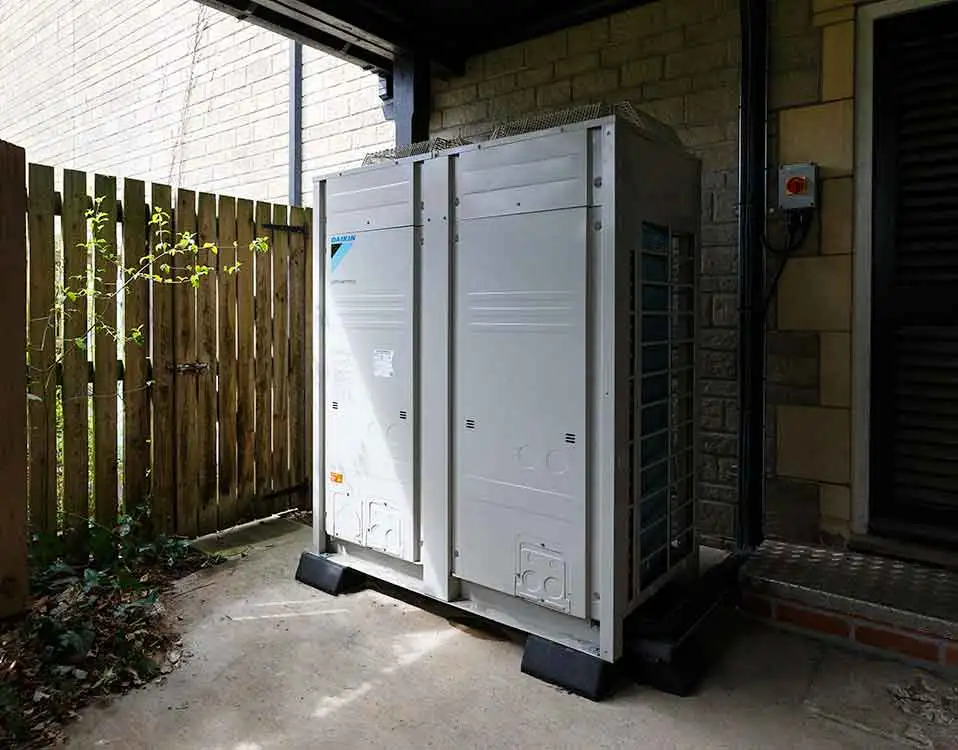Top Energy Efficiency Tips for Businesses
These energy efficiency tips offer many advantages for businesses. In addition to meeting sustainability goals, energy efficiency can reduce costs and improve system reliability. But how can businesses achieve maximum efficiency?
In this blog, we discuss energy efficiency tips for businesses. We learn why businesses want to be energy efficient, how they can enhance energy efficiency within their buildings, and the advantages of doing so.

Why These Energy Efficiency Tips Matter for Your Business
For businesses, energy efficiency isn’t just an operational advantage – it’s a strategic priority. By implementing strategies to reduce energy consumption, businesses can significantly lower their electricity bills and reallocate those funds for other essential needs. Beyond cost savings, energy efficiency is key to helping boost a business’s sustainability efforts and reducing its carbon footprint. Energy-efficient systems are typically more reliable and effective, helping businesses maintain smooth operations and create a comfortable environment.
Are You Tracking Your Buildings Energy Use?
Conducting regular energy audits is an effective method for improving energy efficiency. These audits help businesses pinpoint areas that consume the most energy in their buildings. By identifying high-energy consumption areas, businesses can implement changes to reduce overall energy usage.


How Often Are Your Systems Maintained?
Scheduling regular maintenance ensures that systems like boilers, air conditioning, or lighting operate at peak efficiency. This proactive approach enhances performance, extends the lifespan of commercial appliances, and prevents the system from using excessive energy. Regular maintenance also helps identify faults early, allows for quick repairs, prevents costly replacements, and reduces the risk of unexpected breakdowns.
Could Smart Thermostats Save You on Heating and Cooling?
Smart thermostats allow businesses to control their heating and cooling systems efficiently by providing advanced features such as programmable schedules, remote access, and real-time monitoring. Businesses can use these features to program their heating and cooling systems to turn on or off during out-of-office hours and make necessary adjustments. This ensures that no energy is wasted powering systems unnecessarily and reduces the strain on heating systems, extending their lifespan overall. Additionally, smart thermostats track energy use, providing data to optimise heating and cooling systems and energy efficiency.
Is Your Heating System Optimised for Peak Efficiency?
Heating systems are often among the biggest energy consumers in commercial buildings but optimising them can significantly reduce energy waste and cut costs. Regular maintenance, such as cleaning filters, inspecting ducts, and sealing leaks, ensures the system works
efficiently without being overworked. Heating systems can be upgraded and retrofitted to meet demand and recover energy that would otherwise be wasted. Businesses can use ‘zoning’ to optimise heating systems; zoning allows businesses to program systems to cool or heat certain building areas, lowering energy usage.


Improving a business’s energy efficiency is a smart move. By implementing practices like the ones above, your business can make significant cost reductions, progress towards sustainability, and maintain a comfortable workplace environment.
For those seeking to enhance energy efficiency further, renewable installations like solar PV are excellent ways to improve sustainability and achieve additional cost savings. Contact us to find out how we can assist you in achieving your energy efficiency and sustainability goals.
